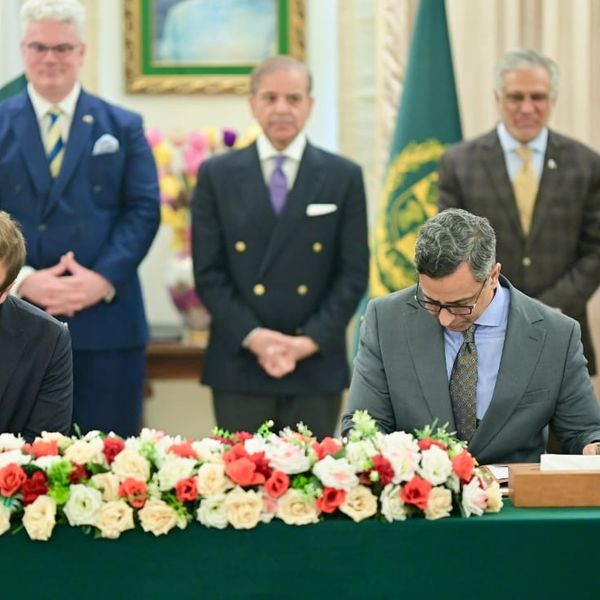Pakistan eyes e-commerce tax hike as IMF team arrives for budget talks
Industry, real estate may benefit; pensioners face new tax risk

Shahzad Raza
Correspondent
Shahzad; a journalist with 12+ years of experience, working in Multi Media. Worked in Field, covered Big Legal Constitutional and Political Events in Pakistan since 2012. Graduate of Islamic University Islamabad.

As Pakistan prepares to welcome an International Monetary Fund (IMF) delegation on May 14 for crucial budget negotiations, the government is weighing a hike in withholding taxes on e-commerce entities in a bid to meet revenue targets and meet the fund’s requirements, senior official sources told Nukta on Monday.
The Federal Board of Revenue (FBR) has drafted multiple proposals for the FY2025–26 budget—including an increase in the 0.25% withholding tax currently imposed on e-commerce platforms like Daraz.pk, OLX.com.pk, PakWheels.com, and Zameen.com.
The move comes amid IMF pressure to expand the tax base and push the tax-to-GDP ratio closer to 11%.
The proposed hike will directly impact online marketplaces defined under Section 2(38B) of the Income Tax Ordinance, which include digital platforms facilitating buyer-seller transactions.
Currently, the FBR collects withholding tax from e-commerce operators in Islamabad, while provincial authorities charge service taxes separately.
The tax proposals will be presented to Prime Minister Shehbaz Sharif on May 15, just days before the federal budget is expected to be tabled in Parliament on June 2.
Super Tax Rollback, Relief for Salaried Class
Among other key budget items, the FBR has recommended a phased withdrawal of the controversial 10% super tax on large industries—a move seen as an effort to boost investor confidence and unlock nearly PKR 200 billion currently stuck in legal disputes. The levy has pushed effective corporate tax rates in sectors like cement, banking, oil, and tobacco as high as 39 per cent.
Meanwhile, in a rare reprieve for middle-income earners, the FBR is proposing to raise the monthly income tax exemption threshold from PKR 50,000 to PKR 80,000, effectively making annual incomes up to PKR 960,000 tax-free.
Officials are also considering reducing tax rates and scrapping the 10% surcharge on monthly incomes above PKR 10 million.
However, the government may face backlash over a separate proposal to levy a 5% income tax on pensioners—an idea that has already sparked concern among retired civil servants and union groups.
Relief for Industry, Real Estate in Sight
To spur industrial recovery, the FBR is also looking to abolish withholding taxes on raw material imports for manufacturing and construction sectors, and cut taxes on property transactions to revive Pakistan’s sluggish real estate market.
While import duties on imported vehicles may ease, domestically manufactured cars with engines larger than 1300cc are likely to see higher taxes. A central digital invoicing system for all manufacturers and retailers is also in the works to tighten compliance.
The government is simultaneously preparing to phase out a trader-friendly fixed tax regime, opting instead for targeted support for small and medium enterprises, categorized by size and sector.
Revenue Target Remains a Challenge
Despite the sweeping changes, officials admit that the PKR 12.3 trillion revenue target for the current fiscal year remains out of reach. Budget talks with the IMF will likely focus on how Pakistan plans to close the gap, with potential support from the Fund contingent on credible reforms and sustainable revenue measures.
While the IMF's approval remains critical, policymakers are hoping that a well-balanced budget—with incentives for industry and relief for taxpayers—will help stabilize Pakistan’s faltering economy.










Comments
See what people are discussing